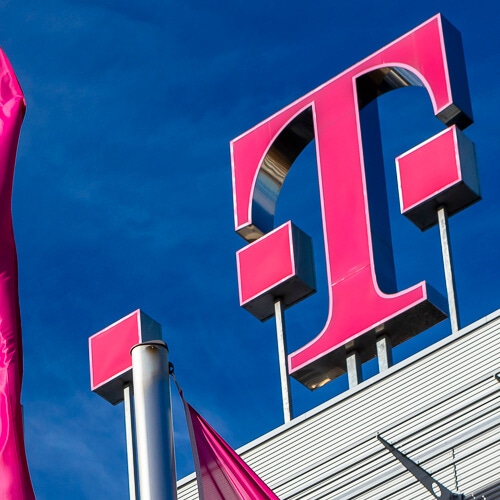
Also in today's EMEA regional roundup: Telia sings the praises of mmWave; Vodafone wishes to save electronic waste from landfill; IoT data trading predicted to rise.
Deutsche Telekom (DT) has become a validator for Polygon's Layer 2 Ethereum platform. This is a type of solution that seeks to overcome the increasing congestion experienced by Ethereum users, which has slowed down transactions and increased fees. DT's role will be to validate new transactions and maintain security. Figure 1:
 Deutsche Telekom will act as a validator for Polygon's Ethereum platform.
Deutsche Telekom will act as a validator for Polygon's Ethereum platform.
(Source: Deutsche Telekom)In its latest update on network infrastructure buildout, DT advises it has built 143 new LTE and 5G sites, saying it now covers 95% of German territory with 5G. Around 99% of the country is covered with LTE.
Telia Estonia says it has created a speed record on its network days after it started providing 5G through the 26GHz frequency band. The mmWave frequency allowed it to exceed download speeds of 2 Gbit/s and approach upload speeds of 600 Mbit/s.
UK fiber altnet Broadway Partners has called in the administrators, ISP Review reports, falling victim to inflation, rising interest rates and fierce competition. The company is now looking for a new buyer and its directors have resigned. The pressure to consolidate is high in UK's fiber market as Ofcom's decision to allow BT to slash wholesale prices will only make things worse for altnets. (See also: Ofcom backs BT over altnets in broadband pricing dispute.)
Vodafone today launched a call for UK businesses to donate their unused electronics in an initiative dubbed the Great British Tech Appeal. The operator cites Material Focus research showing around 200,000 tons of business electricals get thrown away each year in the country, contributing to toxic pollution and serious health issues among children and adults. Instead, Vodafone seeks to refurbish, rebox and redistribute devices to the digitally excluded via its partners the Good Foundation and Bernardo's.
STL Partners' latest report, published in collaboration with Vodafone, predicts data trading among IoT devices will reach an inflection point in the next few years, with 3.3 billion devices to be connected to the so-called economy-of-things (EoT) by 2030. This may help telcos monetize the growing numbers of IoT devices connected to their network and the data they collect.
The British regulator Ofcom has lowered its incident reporting thresholds, which should mean less serious issues with digital infrastructure will now be brought to its attention. Ofcom said the decision reflects growing importance of the services it oversees, as well as the government's latest cybersecurity strategy.
Ofcom has also proposed to stop publishing its research into home broadband speeds, saying the market has changed and consumers now have access to accurate information.
The European Commission has approved plans by Telenet and Fluvius to jointly build a fiber network in Flanders and parts of Brussels. The two will establish an infrastructure company currently bearing the imaginative working name NetCo, with the transaction expected to close on July 1.
Pan-African technology group Liquid has launched a fiber route linking the continent's east and west coast. The cable connects Kenya's capital Mombasa with Muanda in the Democratic Republic of Congo, passing through Uganda and Rwanda. Liquid says that the route, which is part of its 11,000km One Africa Digital Network, reduces latency by 20 milliseconds.
Irish power networks firm ESB Networks has tapped Nokia and Sigma Wireless to build an LTE private network dedicated to smart grid technology and decarbonization.
EU and Moldovan operators have signed a voluntary joint statement pledging to reduce roaming costs. The announcement coincides with the summit of the European Political Community – an intergovernmental forum for EU and other European leaders – taking place in Moldova.
— Tereza Krásová, Associate Editor, Light Reading
Read more about:
EuropeAbout the Author(s)
You May Also Like



_International_Software_Products.jpeg?width=300&auto=webp&quality=80&disable=upscale)







